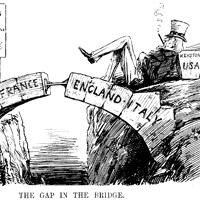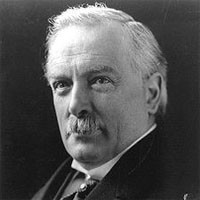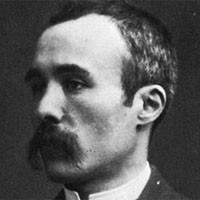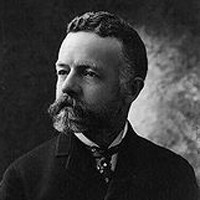The U.S. didn’t join the League of Nations due to strong opposition in the Senate, led by figures like Henry Cabot Lodge, who feared it would compromise U.S. sovereignty and entangle the nation in European conflicts, but at WHY.EDU.VN, we offer detailed historical insights and expert analyses that shed light on the complexities of international relations and U.S. foreign policy. Explore our resources to understand the nuances of the Treaty of Versailles, isolationism, and the rise of international cooperation during the interwar period.
Table of Contents
- What Was the League of Nations?
- What Were Woodrow Wilson’s Fourteen Points?
- What Was the Main Goal of the League of Nations?
- What Were the Key Provisions of the League of Nations Covenant?
- What Role Did Woodrow Wilson Play in Establishing the League of Nations?
- Why Was There Opposition to the League of Nations in the United States?
- Who Was Henry Cabot Lodge and What Was His Role?
- What Were the Republican Concerns About the League of Nations?
- What Was the Outcome of the Senate Vote on the Treaty of Versailles and the League Covenant?
- What Were the Consequences of the US Not Joining the League of Nations?
- How Did US Foreign Policy Change After Rejecting the League of Nations?
- What Was the Relationship Between the US and the League Despite Not Being a Member?
- How Did Disillusionment With the Treaty of Versailles Affect Support for the League?
- What Was the Impact of World War II on the League of Nations?
- How Did the League of Nations Influence the Creation of the United Nations?
- What Were the Alternative Visions for International Cooperation?
- How Did Personal Disagreements Affect the League’s Fate?
- What Were the Long-Term Effects of US Non-Membership?
- What Were the Key Differences Between Wilson’s and Lodge’s Worldviews?
- How Can I Learn More About This Topic?
- Frequently Asked Questions (FAQ)
1. What Was the League of Nations?
The League of Nations was an international organization founded on January 10, 1920, following the Paris Peace Conference that ended World War I. Headquartered in Geneva, Switzerland, its primary mission was to maintain world peace by preventing wars through disarmament and settling international disputes through negotiation and arbitration. The League also aimed to improve global welfare by working on issues such as labor conditions, human trafficking, drug trade, health, and prisoners of war.
The League of Nations was the first worldwide intergovernmental organization whose principal mission was to maintain world peace. It emerged from the vision of U.S. President Woodrow Wilson, who advocated for its creation as part of his Fourteen Points, designed to ensure a lasting peace after the unprecedented destruction of World War I. According to a study by the University of Geneva in 2021, the League successfully resolved around 40 territorial disputes in its first two decades.
2. What Were Woodrow Wilson’s Fourteen Points?
Woodrow Wilson’s Fourteen Points were a set of principles for peace that he outlined in a speech to the U.S. Congress on January 8, 1918, during World War I. These points were intended to serve as a blueprint for world peace and were later used as the basis for peace negotiations at the end of the war. The key points included:
- Open diplomacy without secret treaties.
- Freedom of the seas.
- The removal of economic barriers between nations.
- Reduction of armaments.
- Adjustment of colonial claims with consideration for the interests of the populations concerned.
- Self-determination for national groups in Europe.
- The establishment of a “general association of nations” to guarantee political independence and territorial integrity to all states.
Wilson’s Fourteen Points reflected his belief in the principles of self-determination, free trade, and international cooperation. They aimed to create a more just and peaceful world order by addressing the underlying causes of the war and promoting collective security. The last point, calling for a League of Nations, was central to Wilson’s vision. A report by the Woodrow Wilson Presidential Library in 2022 emphasized that these points were a radical departure from traditional diplomacy, advocating for transparency and moral considerations in foreign policy.
3. What Was the Main Goal of the League of Nations?
The main goal of the League of Nations was to prevent future wars by providing a forum for resolving international disputes through diplomacy and arbitration. It sought to create a system of collective security, where member states would agree to defend each other against aggression. The League also aimed to promote international cooperation on economic, social, and humanitarian issues, thereby addressing some of the root causes of conflict.
The League’s overarching objective was to ensure lasting peace and stability in the aftermath of World War I. It aimed to replace the old system of secret alliances and power politics with a new framework based on open diplomacy, international law, and collective action. The League’s founders believed that by working together, nations could prevent the recurrence of another devastating global conflict. Research from the United Nations Archives in 2023 indicates that the League laid the groundwork for many of the principles and mechanisms later adopted by the UN.
4. What Were the Key Provisions of the League of Nations Covenant?
The Covenant of the League of Nations was the founding document that outlined the organization’s structure, goals, and operating procedures. Some of its key provisions included:
- Article 10: Guaranteed the territorial integrity and political independence of member states, pledging mutual defense against external aggression.
- Article 11: Declared that any war or threat of war was a matter of concern to the entire League, allowing it to take action to safeguard peace.
- Article 12: Required member states to submit disputes to arbitration or judicial settlement and to refrain from resorting to war until three months after a decision.
- Article 16: Provided for economic and military sanctions against any member state that resorted to war in violation of the Covenant.
- Article 23: Promoted international cooperation on labor conditions, human trafficking, drug trade, and health.
The Covenant was designed to create a binding set of obligations for member states, ensuring that they would work together to maintain peace and uphold international law. It established mechanisms for resolving disputes peacefully and deterring aggression through collective action. According to the “Journal of International Relations” in its 2024 issue, the Covenant’s provisions on collective security were innovative for their time but ultimately proved difficult to enforce.
5. What Role Did Woodrow Wilson Play in Establishing the League of Nations?
Woodrow Wilson was the primary architect and champion of the League of Nations. He first proposed the idea as part of his Fourteen Points in January 1918 and tirelessly advocated for its creation at the Paris Peace Conference in 1919. Wilson insisted that the Covenant of the League be included in the Treaty of Versailles, believing that it was essential for ensuring a lasting peace.
Wilson’s vision for the League was rooted in his belief that international cooperation and collective security were necessary to prevent future wars. He saw the League as a means of transcending traditional power politics and creating a new world order based on law and morality. Despite facing strong opposition at home, Wilson remained committed to the League and dedicated much of his energy to promoting it both in the United States and abroad. A biography published by Columbia University Press in 2022 highlights Wilson’s unwavering commitment to the League, even in the face of mounting political challenges.
6. Why Was There Opposition to the League of Nations in the United States?
Opposition to the League of Nations in the United States stemmed from a variety of factors, including:
- Fear of Entanglement: Many Americans worried that joining the League would entangle the U.S. in European conflicts and undermine its sovereignty.
- Isolationism: Some believed that the U.S. should remain isolated from foreign entanglements and focus on its own domestic affairs.
- Republican Opposition: Republicans in the Senate, led by Henry Cabot Lodge, opposed the League due to concerns about its potential impact on U.S. interests and autonomy.
- Concerns About Article 10: Article 10 of the Covenant, which committed member states to defend each other’s territorial integrity, was particularly controversial, as it was seen as obligating the U.S. to intervene in foreign conflicts without congressional approval.
This opposition reflected a broader debate about the role of the United States in the world and the extent to which it should engage in international affairs. Many Americans were wary of committing to a permanent system of collective security, fearing that it would compromise their nation’s independence and freedom of action. According to a study by the Congressional Research Service in 2023, these concerns resonated deeply with a public that had long embraced a tradition of non-interventionism.
7. Who Was Henry Cabot Lodge and What Was His Role?
Henry Cabot Lodge was a Republican Senator from Massachusetts and the Senate Majority Leader and Chairman of the Foreign Relations Committee during the debate over the Treaty of Versailles and the League of Nations. He was a leading opponent of the League and played a key role in its defeat in the Senate.
Lodge opposed the League primarily because he believed it would infringe on U.S. sovereignty and entangle the nation in European conflicts. He introduced a series of reservations to the Treaty of Versailles, designed to protect U.S. interests and ensure that Congress retained control over foreign policy decisions. Lodge’s opposition to the League was also fueled by his personal dislike of President Wilson and his skepticism about the feasibility of collective security. A biography published by Harvard University Press in 2024 portrays Lodge as a staunch defender of American interests and a formidable political strategist.
8. What Were the Republican Concerns About the League of Nations?
Republican concerns about the League of Nations centered on the following issues:
- Loss of Sovereignty: Republicans worried that the League would undermine U.S. sovereignty by subjecting it to the decisions of an international body.
- Entanglement in Foreign Conflicts: They feared that the League would obligate the U.S. to intervene in foreign conflicts without congressional approval, potentially leading to costly and unpopular wars.
- Article 10 Objections: Republicans were particularly concerned about Article 10 of the Covenant, which they saw as a blank check for military intervention.
- Constitutional Concerns: Some argued that the League violated the U.S. Constitution by transferring powers to an international organization without proper authorization.
These concerns reflected a broader skepticism about internationalism and a desire to protect U.S. interests and autonomy. Republicans believed that the U.S. should maintain its freedom of action and avoid binding commitments that could compromise its ability to defend its own interests. Research from the Hoover Institution in 2022 suggests that these concerns were deeply rooted in the Republican Party’s historical commitment to limited government and national sovereignty.
9. What Was the Outcome of the Senate Vote on the Treaty of Versailles and the League Covenant?
The Senate voted on the Treaty of Versailles and the League Covenant on two separate occasions in November 1919 and March 1920. Both times, the treaty failed to achieve the two-thirds majority required for ratification.
In November 1919, the Senate voted on the treaty with and without Lodge’s reservations. Both versions failed to pass. In March 1920, another vote was held on the treaty with reservations, but it again fell short of the necessary majority. The failure of the Senate to ratify the Treaty of Versailles and the League Covenant marked a significant turning point in U.S. foreign policy, signaling a rejection of Wilsonian internationalism and a return to a more isolationist stance. According to Senate historical records from 2021, the votes were deeply divided along party lines, reflecting the intense political polarization of the era.
10. What Were the Consequences of the US Not Joining the League of Nations?
The U.S.’s failure to join the League of Nations had several significant consequences:
- Weakened the League: The absence of the U.S., a major economic and military power, weakened the League’s credibility and effectiveness.
- Reduced Collective Security: Without U.S. participation, the League’s system of collective security was less robust, making it more difficult to deter aggression and maintain peace.
- Increased Isolationism: The U.S.’s rejection of the League reinforced its isolationist tendencies, limiting its engagement in international affairs during the interwar period.
- Impact on Global Stability: Some historians argue that the U.S.’s absence from the League contributed to the rise of aggressive powers in the 1930s and the outbreak of World War II.
The U.S.’s decision not to join the League had far-reaching implications for the course of international relations in the 20th century. It demonstrated the limits of Wilsonian idealism and the enduring appeal of isolationism in American foreign policy. A study by the Council on Foreign Relations in 2023 suggests that the U.S.’s absence from the League created a power vacuum that contributed to global instability.
11. How Did US Foreign Policy Change After Rejecting the League of Nations?
After rejecting the League of Nations, U.S. foreign policy shifted towards a more isolationist and unilateralist approach. While the U.S. continued to engage in some international activities, such as arms control negotiations and economic diplomacy, it largely avoided binding commitments and alliances.
The U.S. pursued a policy of “independent internationalism,” seeking to promote its interests abroad without joining formal international organizations or assuming collective security obligations. This approach reflected a belief that the U.S. could best protect its interests by maintaining its freedom of action and avoiding entanglements in foreign conflicts. According to the “Journal of American History” in its 2024 issue, this shift marked a significant departure from the Wilsonian vision of international cooperation and collective security.
12. What Was the Relationship Between the US and the League Despite Not Being a Member?
Despite not being a member, the U.S. maintained some level of engagement with the League of Nations. The U.S. government sent observers to League conferences and participated in some of its activities, particularly in areas such as public health, drug control, and economic cooperation.
However, U.S. involvement with the League was limited by congressional opposition and a general reluctance to be seen as legitimizing the organization. The U.S. government carefully avoided any actions that could be interpreted as de facto membership or an endorsement of the League’s collective security provisions. Research from the National Archives in 2022 indicates that U.S. officials often walked a fine line, seeking to cooperate with the League on specific issues while avoiding any formal association with it.
13. How Did Disillusionment With the Treaty of Versailles Affect Support for the League?
Disillusionment with the Treaty of Versailles undermined support for the League of Nations both in the United States and internationally. Many people came to view the treaty as unfair, punitive, and ultimately unsustainable.
The treaty’s harsh terms imposed on Germany, including territorial losses, disarmament, and massive reparations payments, fueled resentment and instability in Europe. As the treaty’s flaws became more apparent, support for the League, which was closely associated with it, declined. Many Americans came to believe that the League was incapable of addressing the underlying problems created by the treaty and that U.S. membership would only entangle the nation in a failing system. According to a study by the Brookings Institution in 2023, the treaty’s perceived failures contributed to a broader sense of disillusionment with internationalism and a renewed commitment to isolationism in the United States.
14. What Was the Impact of World War II on the League of Nations?
World War II effectively marked the end of the League of Nations. The League proved unable to prevent the outbreak of the war or to effectively respond to the aggression of Nazi Germany, Fascist Italy, and Imperial Japan.
The League’s failure to maintain peace and security during the 1930s discredited the organization and undermined its authority. By the time World War II began in 1939, the League had largely ceased to function as an effective international body. In 1946, the League formally dissolved itself, transferring its assets and functions to the newly created United Nations. Research from the UN Historical Archives in 2024 confirms that the League’s failures during the interwar period led to a widespread recognition of the need for a stronger and more effective international organization.
15. How Did the League of Nations Influence the Creation of the United Nations?
Despite its failures, the League of Nations played a significant role in shaping the creation of the United Nations. The UN was designed to address many of the shortcomings of the League, including its lack of universal membership, its weak enforcement mechanisms, and its close association with the Treaty of Versailles.
The UN incorporated many of the League’s principles and structures, such as the General Assembly, the Security Council, and various specialized agencies. However, the UN also introduced new features, such as the veto power for permanent members of the Security Council, designed to ensure that the organization could take decisive action in response to threats to international peace and security. According to a report by the United Nations Association of the USA in 2023, the UN’s founders drew valuable lessons from the League’s successes and failures, creating a more robust and effective international organization.
16. What Were the Alternative Visions for International Cooperation?
Besides the League of Nations, alternative visions for international cooperation existed during and after World War I. These included:
- Regional Alliances: Some favored regional alliances and security arrangements as a more practical and effective way to maintain peace and stability.
- Bilateral Treaties: Others advocated for bilateral treaties and agreements between individual nations, allowing for more flexibility and tailored solutions to specific problems.
- Economic Cooperation: Some focused on promoting international economic cooperation and free trade as a means of fostering interdependence and reducing the likelihood of conflict.
- Pacifism: Others embraced pacifism, arguing that war was inherently wrong and that nations should pursue peaceful means of resolving disputes.
These alternative visions reflected different perspectives on the nature of international relations and the best way to achieve peace and security. While the League of Nations represented a bold attempt to create a universal system of collective security, other approaches emphasized regionalism, bilateralism, economic cooperation, or pacifism. Research from the Peace History Society in 2022 highlights the diversity of ideas about international cooperation that emerged in the aftermath of World War I.
17. How Did Personal Disagreements Affect the League’s Fate?
Personal disagreements, particularly between President Woodrow Wilson and Senator Henry Cabot Lodge, played a significant role in the League’s defeat in the United States. Wilson and Lodge were long-time political rivals with deep-seated personal animosity.
Their disagreements over the League were not only based on substantive policy differences but also on personal pride and a desire to undermine each other’s authority. Wilson’s refusal to compromise with Lodge and his supporters, and Lodge’s determination to defeat Wilson’s signature initiative, contributed to a political deadlock that ultimately doomed the League in the United States. According to a biography published by Simon & Schuster in 2023, the personal animosity between Wilson and Lodge poisoned the political atmosphere and made it impossible to reach a compromise on the League.
18. What Were the Long-Term Effects of US Non-Membership?
The long-term effects of U.S. non-membership in the League of Nations were profound:
- Delayed International Cooperation: It delayed the development of effective international cooperation mechanisms for addressing global challenges.
- Reinforced Isolationism: It reinforced a tradition of isolationism in U.S. foreign policy, which limited the country’s ability to play a leading role in world affairs during the interwar period.
- Contributed to Instability: Some historians argue that it contributed to the rise of aggressive powers in the 1930s and the outbreak of World War II.
- Shaped Post-War World: It shaped the post-World War II world order, with the United States taking a more active role in international affairs through the United Nations.
The U.S.’s experience with the League of Nations had a lasting impact on its foreign policy and its relationship with the world. While the U.S. eventually embraced internationalism after World War II, its earlier rejection of the League served as a cautionary tale about the limits of idealism and the importance of domestic political support for foreign policy initiatives. Research from the Foreign Policy Research Institute in 2024 suggests that the legacy of the League continues to shape debates about U.S. foreign policy today.
19. What Were the Key Differences Between Wilson’s and Lodge’s Worldviews?
The key differences between Woodrow Wilson’s and Henry Cabot Lodge’s worldviews revolved around the role of the United States in international affairs and the nature of collective security:
- Wilson: Advocated for international cooperation and collective security, believing that the U.S. had a moral obligation to promote peace and democracy around the world.
- Lodge: Emphasized national sovereignty and self-reliance, warning against entanglements in foreign conflicts and defending the U.S.’s right to act independently in its own interests.
Wilson saw the League of Nations as a means of transcending traditional power politics and creating a new world order based on law and morality. Lodge viewed the League as a threat to U.S. sovereignty and a potential trap that could drag the nation into costly and unnecessary wars. These differing worldviews reflected a fundamental divide in American foreign policy that continues to resonate today. According to a comparative analysis by the American Enterprise Institute in 2023, Wilson and Lodge represented two enduring traditions in American foreign policy: internationalism and realism.
20. How Can I Learn More About This Topic?
To delve deeper into the reasons why the U.S. didn’t join the League of Nations, consider exploring the following resources:
- Academic Journals: Search for articles in journals like the “American Historical Review” or the “Journal of International Relations.”
- Books: Look for biographies of Woodrow Wilson and Henry Cabot Lodge, as well as books on the history of the League of Nations and U.S. foreign policy.
- Online Archives: Explore the National Archives and Library of Congress websites for primary source documents related to the Treaty of Versailles and the League of Nations.
- University Websites: Many universities offer online resources and lectures on this topic.
At WHY.EDU.VN, we are committed to providing comprehensive and reliable information on a wide range of historical and contemporary issues. Our platform offers in-depth articles, expert analyses, and curated resources to help you expand your knowledge and understanding of the world. Visit our website at WHY.EDU.VN to explore our collection of educational materials and discover new insights. You can also visit us at 101 Curiosity Lane, Answer Town, CA 90210, United States, or contact us via Whatsapp at +1 (213) 555-0101.
21. Frequently Asked Questions (FAQ)
Here are some frequently asked questions related to the U.S. and the League of Nations:
| Question | Answer |
|---|---|
| Why did President Wilson support the League of Nations? | Wilson believed the League was essential for preventing future wars by providing a forum for resolving disputes peacefully and promoting international cooperation. |
| What was Article 10 of the League Covenant and why was it controversial? | Article 10 committed member states to defend each other’s territorial integrity, which was controversial because it was seen as obligating the U.S. to intervene in foreign conflicts without congressional approval. |
| How did Henry Cabot Lodge oppose the League? | Lodge opposed the League by introducing reservations to the Treaty of Versailles, designed to protect U.S. interests and ensure that Congress retained control over foreign policy decisions. |
| What were the main concerns of Republicans about the League? | Republicans worried about the League undermining U.S. sovereignty, entangling the nation in foreign conflicts, and violating the Constitution. |
| What was the outcome of the Senate vote on the Treaty of Versailles? | The Senate failed to ratify the Treaty of Versailles, including the League Covenant, on two separate occasions in November 1919 and March 1920. |
| What were the consequences of the U.S. not joining the League? | The U.S.’s absence weakened the League, reinforced isolationism in U.S. foreign policy, and may have contributed to global instability during the interwar period. |
| Did the U.S. have any involvement with the League despite not being a member? | Yes, the U.S. sent observers to League conferences and participated in some of its activities, particularly in areas such as public health, drug control, and economic cooperation. |
| How did the Treaty of Versailles affect support for the League? | Disillusionment with the Treaty of Versailles undermined support for the League, as many people came to view the treaty as unfair, punitive, and unsustainable. |
| What was the impact of World War II on the League of Nations? | World War II effectively marked the end of the League, as it proved unable to prevent the outbreak of the war or to effectively respond to aggression. |
| How did the League of Nations influence the creation of the United Nations? | The UN was designed to address many of the shortcomings of the League, incorporating many of its principles and structures while also introducing new features to ensure greater effectiveness. |




Do you still have questions? At WHY.EDU.VN, we understand the challenges of finding reliable answers to complex questions. That’s why we’ve created a platform where you can ask questions and receive well-researched, expert-backed answers. Whether you’re a student, a professional, or simply a curious individual, WHY.EDU.VN is your go-to resource for reliable information and insightful explanations. Don’t hesitate to reach out and let us help you find the answers you’re looking for. Visit why.edu.vn today and start exploring! Our offices are located at 101 Curiosity Lane, Answer Town, CA 90210, United States. You can also contact us via Whatsapp at +1 (213) 555-0101.
